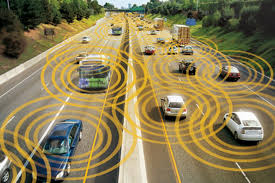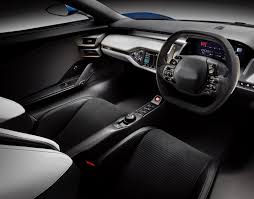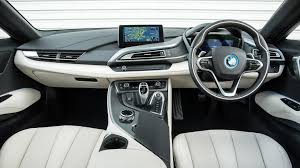How far away, exactly, is the self-driving car? And I don’t mean the sort of guides-you-along-the-motorway car, the ones with a combination of active cruise control and lane-keeping systems. Those you can buy today, and the system in the new Volvo S90 is particularly good. But it’s not self-driving, it’s simply an assistance system. It’ll steer the car by itself for a few seconds at a time, but you always have to keep your hands on the wheel or various alarms and flashing lights will start honking at you to keep your eyes on the road.
No, I mean the kind of fully-robotic cars that thus far have really only been dreamed of in science fiction or tested in a laboratory. The kind of car where you really do just sit in and admire the view out the window, or read a book, or send Tweets or work on your laptop as the car and its robotic systems do all, literally all of the work for you.
Differing opinions
 It kind of depends to whom you talk about this subject, but the general consensus swings between two opposing poles – one that says self-driving cars are imminent, and another that says they’re actually farther away, thanks to a combination of regulatory confusion and customer resistance (not to mention the sheer expense of the technology), than you’d think.
It kind of depends to whom you talk about this subject, but the general consensus swings between two opposing poles – one that says self-driving cars are imminent, and another that says they’re actually farther away, thanks to a combination of regulatory confusion and customer resistance (not to mention the sheer expense of the technology), than you’d think.
Ford, for one, thinks that the robot car is right around the corner, and commissioned a survey this week to find out what the average driver really thought of such vehicles. 5,000 people across Europe were surveyed and the responses, towards robotic cars, were broadly positive. Most said that they would like to use autonomous tech to allow them to catch up with friends and family, to check emails and even to eat a hearty meal (are the McDonald’s drive-thru's of the future going to be clogged with autonomous cars?). Others said they’d simply like to sit and look at the view. One sixth of respondents even said that they’d be happy to put their kids in the car and let the robot do the school run.
Driver perceptions
 “People are really beginning to think about exactly what autonomous vehicles could mean to their day-to-day lives,” said Thomas Lukaszewicz, manager, Automated Driving, Ford of Europe. “Many of us neglect time for ourselves and for our loved ones in the face of other demands. Self-driving cars will revolutionise the way we live, as well as the way we travel. We have already announced plans to use an autonomous vehicle for a ride-sharing service in the US in 2021 and it is important that we extend our testing to Europe. Rules of the road vary from country to country here, traffic signs and road layouts are different, and drivers are likely to share congested roads with cyclists.”
“People are really beginning to think about exactly what autonomous vehicles could mean to their day-to-day lives,” said Thomas Lukaszewicz, manager, Automated Driving, Ford of Europe. “Many of us neglect time for ourselves and for our loved ones in the face of other demands. Self-driving cars will revolutionise the way we live, as well as the way we travel. We have already announced plans to use an autonomous vehicle for a ride-sharing service in the US in 2021 and it is important that we extend our testing to Europe. Rules of the road vary from country to country here, traffic signs and road layouts are different, and drivers are likely to share congested roads with cyclists.”
Others are less than sure about us humans being totally happy with the oncoming tide of robotic cars. For a start, it’s worth remembering that while this survey shows generally good feelings towards self-driving cars, it has been commissioned by a major car maker which has pledged billions of dollars of R&D spending on just such cars. It’s also easy to fill in an abstract form saying that you love the idea of cars that drive themselves, quite another to have the trust and sangfroid to allow the microchips to take over the life and death decisions of daily driving.
Considerations
 So far, we’ve only been allowed to dip our toes into the shallowest ends of robotic driving on the real road, but even then it can be unnerving. The first time you feel a car twitch and correct itself, relying on the lines in the road for guidance, can be deeply unsettling and there will most certainly be an ‘uncanny valley’ of perception to overcome before a majority of people are comfortable with the technology.
So far, we’ve only been allowed to dip our toes into the shallowest ends of robotic driving on the real road, but even then it can be unnerving. The first time you feel a car twitch and correct itself, relying on the lines in the road for guidance, can be deeply unsettling and there will most certainly be an ‘uncanny valley’ of perception to overcome before a majority of people are comfortable with the technology.
There are also concerns that robotic cars could unleash traffic chaos, as millions of people who don’t currently drive for one reason or another suddenly fancy taking to the road in cars that take the strain on their behalf.
Perhaps we are getting ahead of ourselves here, though. Don Norman is a futurologist and tech expert who’s worked with Apple, with Microsoft and with many of the globe’s major car makers and he doubts that the rise of robot cars is as imminent as we all think, saying that “for autonomous cars, it’s going to be a long time. The car makers are pushing it faster than is safe. They’re all capable of doing the same thing and the difference is the corporate structure that decides whether it’s safe to release it or not. Mercedes is the leader in what it’s allowed its cars to do, such as some automated highway driving.
“But look at Tesla, which announced that it could do so much, that the car could automatically pass other cars and so on. Well, I’ve been working with companies, and they’re all working on the same technology, their cars can all do the same things, but they’re not ready to release it yet. Tesla released it and said it was great, and now they’re apologising and drawing it back, and we all predicted that – the cars are just not ready yet. Tesla's are remarkably good cars, but on top of that the easiest driving is highway driving, but city driving is much harder, and no-one is ready for that yet. And the Google car is not a good comparison, because they use extremely accurate mapping and much more expensive equipment than would ever be possible on a commercial car, and even Google says that they’re going to kill somebody some day, and that’s just because it’s just inevitable. So I’m still talking decades before autonomous cars are a major issue.”
The cost of introducing autonomous cars
There’s also the question of what autonomous cars will do to resale values of current vehicles, which sounds terribly parochial as a concern, but one which we should now possibly begin to take seriously. Self-driving cars will be, to put it mildly, a disruptive technology, changing utterly not just the way we drive, but the way we own cars. In fact, ownership may take a serious tumble in the short term, as self-driving cars will initially at any rate likely operate in fleets, rented by the minute or by the hour by users via a smartphone app, and never owned by anyone other than a corporation such as Uber (which is already putting robot cars on trial in the US) or Google (which is generally seen as having a major lead in robot car research).
What happens to the value of your shiny pride and joy when a majority of people just want a car that they only pay for when they use it? It’s a worry that should be at the forefront of every car owners’ mind. Don Norman may be right, and it may take years for autonomous cars to become prevalent, but it’s worth starting the preparations now.